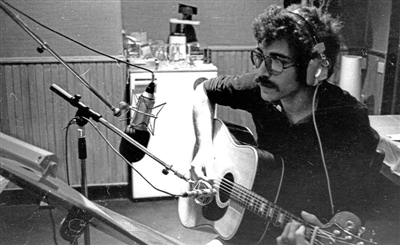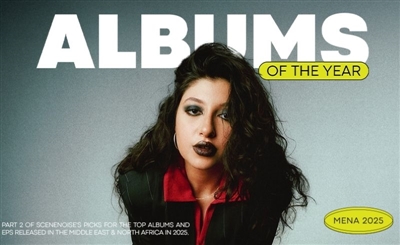Arhan Afndy’s ‘Tale of a Merchant’ Fuses Stories of East and West
Eclectic, psychedelic and other-worldly, ‘Tale of a Merchant’ is a cross-cultural ode to the the Palestinian artist’s personal journey and his coming to terms with duality of East and West.

For as long as one can remember, East-West fusion in contemporary music has been a theme that performers across any number of genres have longed to perfect, a task that Arhan Afndy takes on with his debut album, Tale of a Merchant.
Perhaps the name of the record itself evokes the very essence of the East-West dialogue that Afndy aims to translate into his art. Tale of a Merchant is exactly what it claims to be - a blend of Eastern and Western string instruments, jazz-like percussion, various samples native to Arabic souk motifs and Afndy's schematic Arabic lyrics littered throughout each track. In order to achieve such an ambitious mission, the album is immersed in notes of almost-there psychedelia, a necessary allusion to the mystery of duality that Afndy comes to terms with.
Notably, the juxtaposition of the region’s native sounds with Western violins creates an undeniable air of the ancient and the antique, which acts as the backbone of the album. This is particularly true for the opening song, ‘Tabban’, which builds a delicious crescendo of energetic strings that puts listeners in that temporal soft spot between the dualities of old and new, East and West, and the energetic and bold realities that Tale of a Merchant seeks to concoct.
The album is a largely subjective work that frames Arhan Afndy’s personal journey of self-discovery, inspired by themes of multiculturalism in his upbringing. While the whole album stitches elements of musical polarities together, 'Kaña Makan' is his most successful attempt at the feat, proving to be the most fruitful endeavor in intentionally exposing the seams of Afndy’s East-West identity. There exists a nuance in trying to force dialectics into coexistence and allowing them to inform each other - 'Kaña Makan' masterfully approaches the latter and allows the different layers of each culture to materialise into one distinct fluid body, without constraining them into a predetermined mould that threatens to do either of their histories a disservice.
- Previous Article test list 1 noise 2024-03-13
- Next Article Rapper Uzu Continues Hot Streak with Surprise New Single ‘Cayrolin’
Trending This Month
-
Dec 24, 2025
-
Dec 15, 2025






















